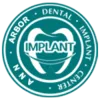
What Happens When you Don't Have Enough Jawbone for Dental Implants in Ann Arbor, MI?
When a tooth falls out through trauma or decay, it can be an embarrassing and painful ordeal. Thankfully, we have ways to replicate and replace a missing tooth. Almost to the point that most people can hardly tell the difference. Granted, it will cost a lot of money, and will take some time to recover, but ultimately the benefits outweigh the drawbacks.
But what if there are complications that are getting in the way of your dental implant? What if there is some sort of bone or gum loss that prevents the proper implimentation of an implant? How can that be fixed? What causes jawbone loss in the first place?
How Missing Teeth Alters your Jaw
Our teeth are surprisingly connected to the jaw in ways that are not the gumline. There are two sections that connects the tooth to the jaw called the periodontal ligament and cementum. The periodontal ligament is a combination of connective tissue and collagen fiber. Cementum is a bone like material that covers the tooth's root. The combination of both of these create and outer and inner attachment of the tooth to the socket.
So, what happens if those connections are severed? If there is no longer a tooth for the cementum, periodontal ligament, and blood vessels to connect to, what happens to the empty part of the jawbone?
Thankfully, we have healthcentral.com to answer that question. "Once a tooth is lost, the alveolar bone in the jaw that supports the tooth begins to disintegrate, which can affect the structure of the face. This includes the jaw and its joints and muscles if many teeth are missing. This negatively affects remaining teeth, causing shifting and issues with bite (the alignment of the upper and lower teeth). This can result in difficulty chewing and poor nutrition. That’s why it’s best to replace missing teeth as soon as possible."
So, not only does the tooth require replacing but if there is a greater tooth loss, there is a good chance that the entire jaw might need replacement before an implant can be put in.
Why Can the Jaw Bone Dissolve and How Does a Graft Fix It?
If there is too much bone loss from the jaw then there needs to be a replacement. But how does that process work? And why does the bone dissolve if it is a hard material?
For starters, our bones are a lot more flexable than most people realize. While it is true that the harden when we grow older, it is still made of cells that are constantly dying and being replaced. And if nothing happens to it, the form of the bone would not change.
However, if there is enough trauma or bone loss, our bones will try to malleably adjust for that loss. This leads to jaw malformation and the surrounding teeth trying to take up or spread out into the empty spaces.
The only to correct this and still keep as close to your original jaw shape is to provide a piece of bone to make up for that loss, and allow your jaw to heal around it. This takes quite a few months to recover, but once you do the graft, it will provide a solid foundation to hold the implant.
Where does the Bone for the Graft Come From?
The materials can vary depending on the severity of the injury or jawbone dissolution. Sometimes, the dental surgeon will use some of your own bone to decrease the chance of grafting complications. After all, barring auto immune disorders, your body is less likely going to reject the graft if the part already came from part of you than it is from a donor or foreign substance.
Sometimes, however, they might have an artificial compound that is likely to stick or fill in areas where there needs to be more bone than what you or a donor can provide.
What About the Gums?
If your jaw bone is getting replace, that will mean that there is probably already a lot of gum loss already. If that is the case, there is a good chance that you are probably worried about the implant staying in once the dental implant surgery is over.
Luckily, there are ways that dental surgeons can help encourage gum growth as part of implant recovery. There are meshes available for guided tissue restoration, which can help speed along the growth of the gumline.
If you have any questions regarding dental implants in Ann Arbor, Mi feel free to visit https://www.annarborimplant.com/
